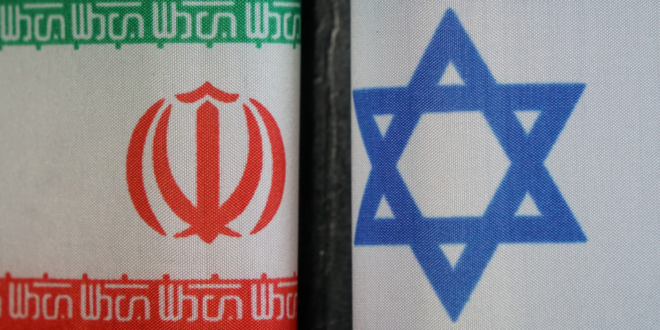While there are many unknowns about what might happen next in the Middle East, Israeli strikes on Iranian targets today reinforce several trends.
First, it again highlights the depth of Israeli intelligence infiltration in Iran through a joint military-intelligence operation, with Israeli jets dominating the skies and Mossad agents setting up bases for drones and operating behind enemy lines.
Second, after incapacitating its proxies, the Iranian regime has no competitive air power nor an exceptional intelligence operation to launch a qualitative retaliation beyond the limited use and impact of drones and ballistic missiles.
Third, these Israeli operations reflect once again how explosive the US-Israeli-Iranian “love triangle” can be.
These Israeli strikes are well beyond targeting Israeli nuclear capabilities and scientists. The attacks included military assets to preempt any Iranian retaliation by killing the commanders of the Iranian Air Force and air bases, as well as Iran’s Revolutionary Guards commander, Hossein Salami.
Moreover, the message of targeting Supreme Leader Ali Shamkhani is that it can target whoever and whenever it wants, even Supreme Leader Ali Khamenei.
The Iranian regime’s preoccupation with negotiations does not mean that it should not have been constantly prepared for any Israeli operation, apparently beyond what they have anticipated.
This Israeli operation today is parallel to the nuclear negotiations, and Trump has been clear with the Iranian regime that the time to reach a nuclear agreement is limited; otherwise, an Israeli military strike is possible.
Incidentally, this ongoing Israeli operation marks the two-month deadline US President Donald Trump set to reach a nuclear deal in his initial letter to Khamenei on May 12, which shows the subtle US message to the Iranian regime.
It also came one day after the board of governors of the International Atomic Energy Agency (IAEA) voted motion that Iran is in breach of its non-proliferation obligations for the first time in two decades, to which Iran said it would open a new enrichment facility.
Indeed, Trump’s message just after the Israeli strikes was telling. He noted that “I gave Iran chance after chance to make a deal…they just couldn’t get it done”, “I told them it would be much worse than anything else they know”, and that “Iran must make a deal, before there is nothing left, and save what was once known as the Iranian Empire”.
The Trump administration remains committed to negotiating with Tehran and hopes that this Israeli operation will help the pressure in this direction, but there may be adverse consequences with the hardening of the Iranian position, especially if unable to have a satisfactory retaliation.
The Trump administration did not actively participate in the ongoing Israeli operations but was informed about the timing and targets, and currently has no desire or intention to engage militarily in the event of a direct Iranian-Israeli confrontation unless Israel finds itself in a difficult military position, which is unlikely.
The sixth round of talks between American and Iranian officials was scheduled for June 15 in Oman. However, with Iran under Israeli attack, it’s unlikely the regime would agree to a nuclear deal, a reality confirmed just hours ago by Iran’s withdrawal.
The short-term impact of these strikes is significant — it’s an effective declaration of war — and weakens Iran’s negotiation power as it has incapacitated most Iranian nuclear assets; however, it might not undermine the Iranian nuclear program in the long run, as the Iranian regime might use the nuclear knowledge to rebuild the nuclear program.
Trump blindsided Israeli Prime Minister Benjamin Netanyahu during his stop in the Oval Office last April by announcing the nuclear talks with Iran and asking him not to take any military actions to leave the door open for diplomacy. Trump took it personally when Netanyahu literally went behind his back to directly coordinate with former White House National Security Adviser Mike Waltz, who was ousted on May 1 because of that.
However, it seems that Trump and Netanyahu have privately kindled their relationship, and that while Trump has no problem in leading a US foreign policy that is independent of Israel and even contradictory to its interests, Washington has no problem in having an Israeli whip on the Iranian regime when needed.
As in every “love triangle”, there is toxicity when one party does not get what it wants from the other, and it appears that the US and Israel are, respectively, playing good cop and bad cop with Iran.
The Iranian regime is facing difficult choices. It has to recover from this ongoing Israeli operation and decide what could be a “face-saving” retaliation and whether accepting a nuclear deal in these conditions could be perceived as a surrender. This confrontation is part of the ongoing vicious cycle of regional conflicts, but it might pose the most significant challenge to the Iranian regime.
 Eurasia Press & News
Eurasia Press & News



